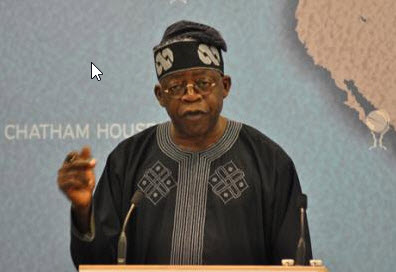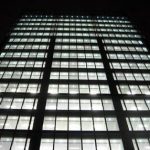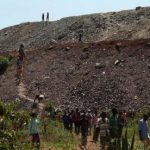
With Nigeria’s ruling PDP facing serious internal and external problems, four opposition parties merged to become the All Progressive Congress.
Since Nigeria’s transition from military rule to multi-party governance in 1999, the candidate representing the People’s Democratic Party (PDP) has won every single presidential election. Although putting up a fight, opposition candidates have never really looked likely to end the PDP’s dominance.
However, in the upcoming 2015 elections, Nigeria’s opposition could have its best chance yet. This February, four of Nigeria’s opposition parties banded together to form the All Progressive Congress (APC). Meanwhile, questions are increasingly being asked of the current government’s ability to tackle outstanding economic, social and security challenges, and the PDP is thought to be beset with internal disputes and personality battles.
Could the APC signal a new era of Nigerian politics?
A call for change
Speaking at the inauguration of the new coalition, Tom Ikimi, chairman of the APC merger committee, proclaimed: “At no time in our national life has radical change become more urgent…We, the following political parties – namely ACN [Action Congress of Nigeria], ANPP [All Nigeria People’s Party], APGA [All Progressive Grand Alliance] and CPC [Congress for Progressive Change] – have resolved to merge forthwith and become All Progressive Congress and offer to our beleaguered people a recipe for peace and prosperity.”
A merger of opposition parties has been proposed around every election since 1999, but until now conflicting political interests, ethnic chauvinism and even sabotage scuppered such efforts. The closest Nigeria came to such an alliance previously was in the lead-up to the 2011 presidential election when the CPC and ACN proposed a coalition – the two parties’ failure to resolve their difference and reach an agreement paved the way for a comfortable PDP victory.
Prior to the APC merger, each opposition group was viewed more as a regional party, representing ethnic blocks – a contrast to the outwardly nationwide appeal of the PDP. The coalition has thus brought together several major ethnic groups and notably crosses the north-south divide by uniting together: the Hausa-Fulani-dominated CPC, which garnered 31.8% of votes in the 2011 presidential elections; the Yoruba-dominated ACN, which currently controls 6 out of the 36 states in the federation, including Nigeria’s commercial capital, Lagos; the Igbo-centred APGA, which holds one state; and the ANPP, which controls Borno and Yobe states.
“The move towards a two-party system creates a potentially more credible, formidable and focused opposition”, explained Adigun Agbaje, Professor of Political Science at the University of Ibadan. Meanwhile, speaking to Think Africa Press, former PDP minister Femi Fani-Kayode went as far as to say, “If things don’t change and the present administration is not voted out, then Nigeria will eventually end up like the Republic of Zaire – a failed state with no hope of a decent future.”
PDP difficulties
In recent years, the total dominance of the PDP has waned somewhat. President Goodluck Jonathan received 57% of votes in the 2011 elections, down from the 70% garnered by his predecessor, the late Umaru Yar’Adua in 2007. The PDP controls 56% of the seats in the House of Representatives, compared to 73% in 2007. And its strength in the Senate over the same period has decreased from 81% to 65%.
Furthermore, while the opposition is coming together, there are signs internal divisions in the PDP are deepening. There seem to be ongoing disagreements, for example, between governors and the National Working Committee led by Bamanga Tukur – these rifts were exemplified by the fact the majority of governors chose to boycott Tukur’s recent reconciliatory tour to various PDP-controlled states.
A further contentious issue is the perceived decline of Olusegun Obasanjo, a former military ruler who went on to win the 1999 and 2003 presidential elections and who continues to be an influential figure in the PDP and respected international figure. At local and international forums, Obasanjo has not shirked from speaking out against the government’s handling of the northern Islamist militant group Boko Haram and the high levels of unemployment. The removal of a known Obasanjo loyalist in the PDP’s national executive further points to a rift which, if not resolved, could play into the APC’s hands.
APC’s upcoming challenges
In response to the inauguration of the APC, the PDP released a strongly-worded statement signed by the party’s National Publicity Secretary, Olisa Metuh, asserting: “Nigerians are here confronted with an irony. It is an irony of a political party which without adequate planning, without a solid working rhythm, yet wishes to be entrusted to its effete, shaky shoulders, the fate of over 160 million Nigerians”. It continued, “the nation, her people and our democracy are all in jeopardy should they be entrusted with power.”
Whilst clearly partisan, the statement points to the fact that the APC faces several tricky challenges itself.
“Should the new party consolidate and begin to operate as a single entity, it is likely that the 2015 elections will be more competitive”, explained Samir Gadio, Emerging Markets Strategist for Standard Bank, “[but] the sustainability of the merger is not without risks”.
“The presidential nomination ahead of the 2015 contest may still divide the new organisation. Besides, the PDP is still in control of most states and has access to administrative resources, which is a key comparative advantage”, he continued.
Similarly, Ayo Dunmoye, professor of political science and dean of social sciences at Ahmadu Bello University in Zaria, insisted the APC ought to “debate on issues, not personalities”, embrace internal democracy, and allow candidates to emerge in free primary elections – “otherwise the merger will be stillborn,” he warned.
Indeed, the two main players in the APC – Muhammadu Buhari, former military ruler and CPC’s head, and Bola Tinubu, former governor of Lagos and ACN’s leader – will likely have their own agendas in the run up to the 2015, and the choice of presidential candidate could prove a real test for the coalition. After all, a number of APC members look likely to be interested in that position, such as Buhari himself, former Minister of the Federal Capital Nasir El Rufai and governor of Lagos Babatunde Fashola.
A new political terrain?
A strong and viable opposition is an essential part of any electoral process and the merger should bring about increased competitiveness in Nigerian politics. But this in of itself does not guarantee ordinary Nigerians will benefit. Political wrangling in the past has done little to help ordinary Nigerians, and problems of unregulated money in politics, patrimonialism and corruption within parties are likely to confront the APC too.
But amidst this, Agbaje of the University of Ibadan places his faith in the Nigerian people. “The resilience of the people, their vitality, broad disdain for authoritarianism and yearning for freedom, justice and equity promises to constantly work for a future secure in democracy, development and peace”, he says.
Whether these ideals work in favour of the ruling PDP or the newly-formed APC remains to be seen, but if the new coalition manages to hold firm until 2015, the elections will be the closest of the Fourth Republic.
By Lagun Akinloye

